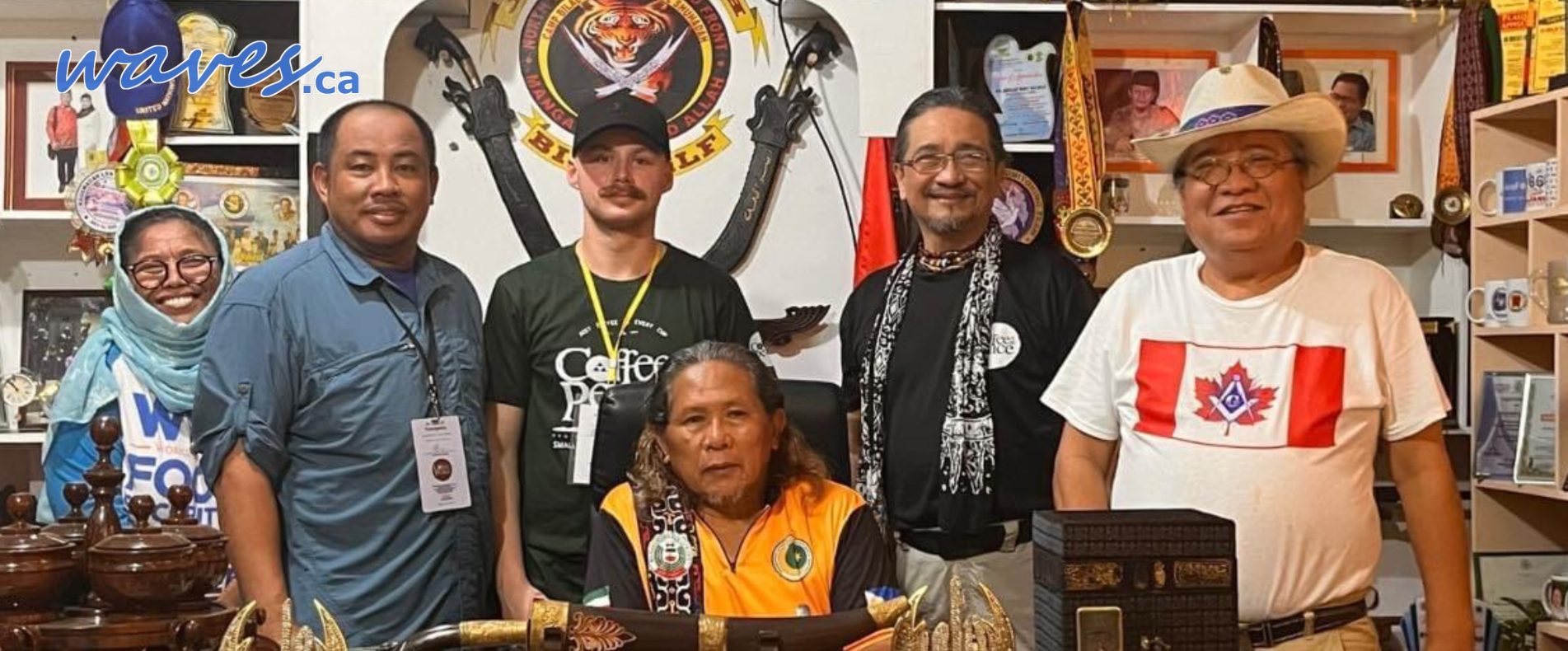Release Date: November 3rd, 2024Ben in the Philippines
As the delegation left the rebel camp, men lined each side of the road, a seemingly stark and tense scene. On one side stood rebels in camouflage, carrying large assault rifles, their expressions hardened by years of conflict. On the other side, the armed forces of the Philippines, equally armed and vigilant.
For Ben Isert Bender, a newcomer from Canada who had just arrived to begin his year-long internship, this was a moment that struck deep. The stark reality of the situation was unlike anything he had experienced before.
"What they observed was a quiet yet powerful sign of progress: the men on each side of the road—rebels on one side and government forces on the other—were engaged in conversation."
As they departed the 10th anniversary celebration of the peace agreement between the rebels and the government, where PeaceBuilders Community, Inc. (PBCI) was honoured with a plaque of appreciation for their support of the peace process, something remarkable caught the attention of Ben and his colleagues.
What they observed was a quiet yet powerful sign of progress: the men on each side of the road—rebels on one side and government forces on the other—were engaged in conversation. They stood there, fully armed, but instead of the usual tension or hostility, they were simply talking to each other.
“This was such a powerful moment of hope for PeaceBuilders Community,” Ben reflected. “It highlighted the significant growth and progress in helping to lay the groundwork for lasting peace in the area over the last ten years.”

Ben Isert Bender is currently midway through his year-long internship in the Philippines, where he is working closely with Dan and Joji Pantoja at PBCI and Coffee for Peace. Sponsored by MC Canada and MCEC, Ben’s internship has immersed him in peacebuilding efforts and community development in a region marked by a history of conflict. His experiences so far have been both challenging and deeply meaningful, offering a unique perspective on the complexities of reconciliation and the power of dialogue.
Ben shares, “Several times now I have been in situations where I suddenly wonder, ‘How did I get here?’ I wonder how I was even allowed into the room!” His words capture the surreal yet significant nature of his work, as he finds himself often in spaces where few outsiders have tread.
Commander Bravo of the North Western Mindanao Front of the Moro Islamic Liberation Front (MILF) extended an invitation to the PBCI team to visit his headquarters. During the visit, he shared his transformative vision for the MILF camp base, aiming to shift it from an armed rebel stronghold into a thriving social entrepreneurial community. By partnering with Coffee for Peace, they plan to cultivate a coffee plantation to create jobs, stimulate the local economy and foster a sense of shared purpose and peace as a site of conflict becomes a beacon of hope and cooperation.
“My view of the world has been challenged for sure,” says Ben. “When I look at the Philippines I see hope. It is moving in a positive direction. A lot of work has been done and a lot still needs to happen but there is definitely a lot of hope.”
You can read more about the work that Ben is involved with, including his personal reflections, by visiting waves.ca. This site offers insights into their ongoing peacebuilding and community development efforts, providing a deeper understanding of the challenges and successes they encounter along the way.